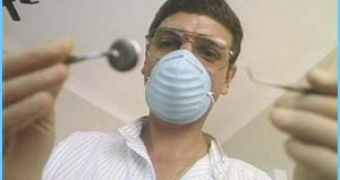Any time when we have to go to the dentist, our brain recalls an upcoming nightmare: pain, pain and more pain.
But what if a decayed tooth is fixed painlessly, with no drilling or shots of anesthesia to the area?
Now, this could be possible due to two studies conducted at the University at Buffalo's School of Dental Medicine.
One investigation, at the school's Center for Dental Studies, focuses on finding a nasal spray that numbs the upper teeth. "If this study is successful, it may mean the end of dental injections when dentists are performing procedures on the upper Arch", said Sebastian Ciancio, D.D.S., principal investigator in the study.
The second research will investigate the use of ozone to kill germs in a decayed tooth as a potential tool for getting rid of the dreaded drill or, at least, for fixing simple cavities. In fact, the ozone delivery device is currently employed in Europe. "If the U.S. studies are successful, it should be available in this country in about two years," said Ciancio.
The nasal spray used for anesthesia is already in surgery involving the ear, nose and throat. Those patients who received the anesthetic spray said they also felt numbed their upper teeth. "We currently are testing to determine what the optimal dose is for this spray when used as an anesthetic agent for the maxillary (upper) teeth," said Ciancio.
"The current study includes 85 patients and should be completed by the end of January and will be followed by a second study in March. Once we know the results, we'll then test it in a broader population."
125 volunteers will be tested in the 18 months ozone study to assess the effectiveness of the ozone delivery device, which is molded over a tooth and makes an airtight seal, stopping tooth decay development. "Following application of the ozone, patients will use a remineralizing solution, which strengthens the weakened tooth structure and, in many cases, eliminates the need for any dental drilling," said Ciancio.

 14 DAY TRIAL //
14 DAY TRIAL //